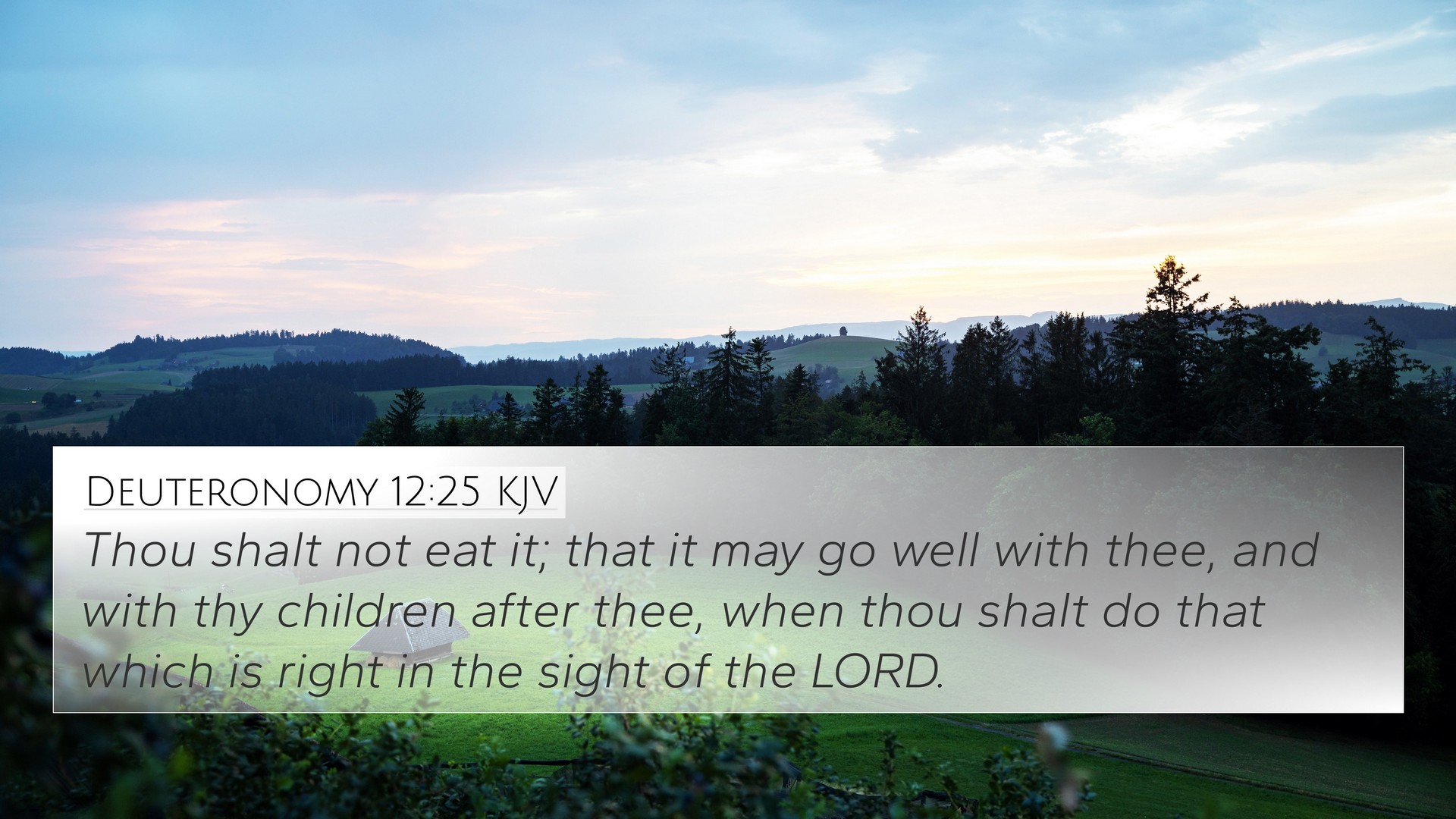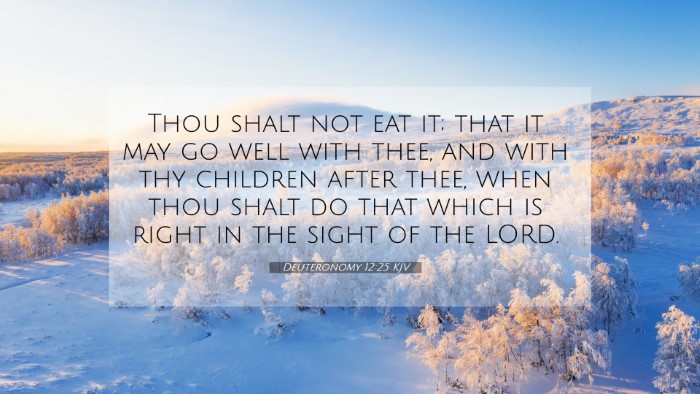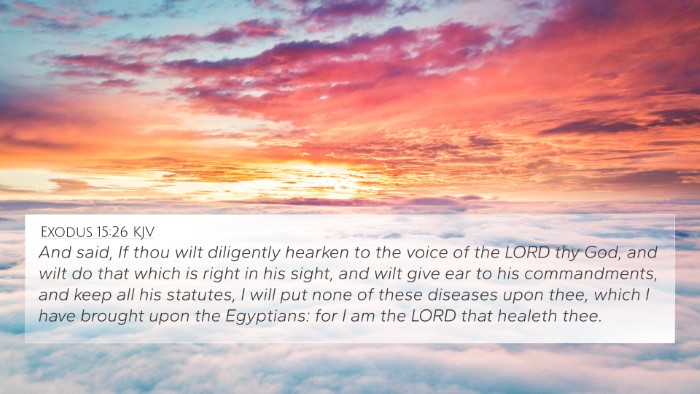Meaning and Interpretation of Deuteronomy 12:25
Bible Verse: Deuteronomy 12:25 - "You shall not eat it, that it may go well with you and with your children after you, when you do what is right in the sight of the LORD."
This verse underscores the importance of obedience to God's commandments, emphasizing that the outcomes of such obedience extend beyond the individual to their descendants.
Summary of Insights from Commentaries
The commentaries from Matthew Henry, Albert Barnes, and Adam Clarke provide a rich understanding of this verse by highlighting several key themes:
- Obedience to Divine Commandments: Matthew Henry emphasizes that the prohibition against consuming certain things is tied to a larger principle of obedience. God’s laws are not arbitrary; they serve a purpose for our wellbeing.
- Future Generations: Albert Barnes notes that the implications of one’s actions affect future generations. By following divine decrees, individuals ensure favorable outcomes for their children, thus linking personal conduct with communal and generational responsibilities.
- Moral Conduct: Adam Clarke reflects on the idea of doing what is right in the sight of God, which goes beyond mere adherence to laws. It calls for an inner moral compass aligned with God’s character.
Thematic Bible Verse Connections
This verse has thematic connections with various other Bible passages that articulate the principles of obedience, blessings, and the moral responsibility we hold concerning our families:
- Exodus 20:12 - "Honor your father and your mother, that your days may be long..."
- Proverbs 22:6 - "Train up a child in the way he should go..."
- Galatians 6:7 - "Do not be deceived: God is not mocked, for whatever one sows, that will he also reap."
- Deuteronomy 6:2 - "That you may fear the Lord your God, you and your son and your son's son, by keeping all his statutes..."
- Psalm 37:25 - "I have been young, and now am old, yet I have not seen the righteous forsaken..."
- Romans 14:17 - "For the kingdom of God is not food and drink, but righteousness and peace and joy in the Holy Spirit."
- Isaiah 1:19 - "If you are willing and obedient, you shall eat the good of the land."
Cross-Referencing Biblical Texts
The study of Deuteronomy 12:25 can be enriched through cross-referencing a variety of related scriptures. Understanding these connections provides a more comprehensive insight into the nature of obedience and its repercussions:
- 1 Peter 3:10-12 - Emphasizes righteous living for the sake of future blessings.
- Ephesians 6:1-3 - Highlights the connection between honoring parents and divine promise.
- Malachi 4:6 - Discusses the turning of hearts between fathers and children in relationship to God's covenant.
Conclusion
The understanding of Deuteronomy 12:25 extends beyond mere reading; it involves interpreting the significance of obedience to God’s law and its impact on one’s life and the lives of future generations. By exploring the interconnectedness of biblical texts, believers can derive greater significance from their study of scripture.
Utilizing Cross-Referencing Tools
For those looking to delve deeper, utilizing tools for Bible cross-referencing such as concordances and thematic guides can enhance one’s study. These resources assist in linking Bible scriptures and uncovering the rich tapestry woven throughout the biblical narrative.
Understanding how to find cross-references in the Bible not only aids in enriching personal study but can also assist in sermon preparation and discussions. A comprehensive Bible cross-reference system allows individuals to explore the connections between narratives, themes, and teachings across both the Old and New Testaments.














